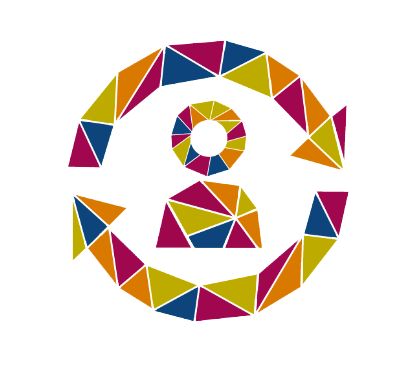Within the current context of constant and bursting transformations, there are numerous fronts on which companies must tackle challenges. The relationship between people and the organisations they work for is changing, and this requires a comprehensive transformation that affects organisational and technological aspects, as well as the physical spaces in which work takes place. As a result, some roles may be phased out while new ones emerge, necessitating reskilling and upskilling efforts.
Many voices are now pointing out that the ongoing digital transformation is not primarily about machines and new technologies, but rather about the “human” factor. To create the fertile ground for any change, it is crucial to engage and involve people in the process.
This means that the most profound and pervasive aspect of digitalisation for companies is their culture, mindset, and system of relationships among people. The ability to deeply understand and embrace change, rather than erecting defensive barriers, is key to leveraging it as a learning opportunity.
Above all else, it is this revolution that must be closely guarded, monitored, and nurtured with utmost attention. By working with shared objectives and a sense of widespread responsibility, companies can unleash the full potential of their digital transformation and drive meaningful progress.
At Hermes Consulting, we aim at supporting you to effectively and sustainably realise the transformations your company is experiencing. From digitisation and the implementation of new ways of working (e.g. Hybrid working and virtual workgroups) to the evolution of corporate roles and functions.
Find out more!
World News:
The increasing digitisation of our society is propelling at an incredible pace. Markets, technologies and organisations are swiftly changing, becoming more and more interconnected and quickly transforming into digital workplaces. The World Economic Forum report entitled “The Future of Jobs and Skills” highlights how digitisation, robotics, artificial intelligence and new digital technologies are spreading at breakneck speed, generating momentous changes in the Labor Market. This transformation leads to the strengthening of a “disrupt, innovate and accelerate” mindset and an increasingly digital and collaborative culture heading for a new 4.0 work environment.
It seems that, after the pandemic, working from home may affect 4.4 million workers in Italy and that these dynamics will be used by 9 out of 10 large companies. Following this two-year period, agile work projects have grown exponentially and are now the “new normal” in 81 percent of large companies (as opposed to 65 percent in 2019).
As it was seen during the pandemic, technology has allowed us to go above and beyond. Thanks to recently developed technological tools, we have been able to broaden our horizons, which is why knowing and using them is crucial today to be able provide cutting-edge solutions that exceed expectations. Today, more than ever, we need a transformation towards the digital environment that could bring value and competitiveness.
FONTI:
https://www.repubblica.it/economia/2021/11/03/news/smart_working_osservatorio_politecnico_di_milano-324863995/
Trani, M. (2021). Sostenibilità e digitalizzazione del sistema produttivo italiano: un’analisi statistica attraverso i dati del censimento permanente delle imprese.
Case Studies

Leadership in the digital era

New Horizons



